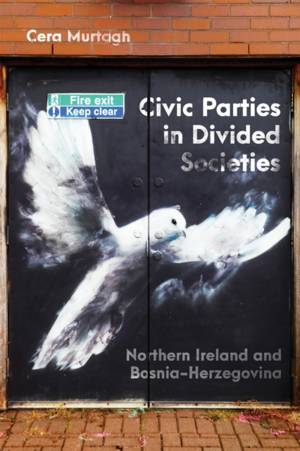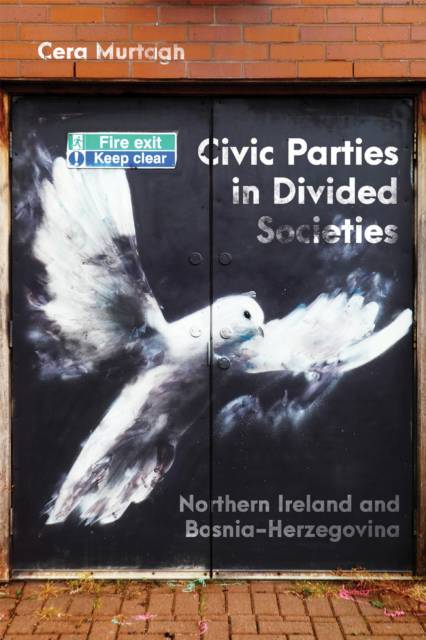
- Afhalen na 1 uur in een winkel met voorraad
- Gratis thuislevering in België vanaf € 30
- Ruim aanbod met 7 miljoen producten
- Afhalen na 1 uur in een winkel met voorraad
- Gratis thuislevering in België vanaf € 30
- Ruim aanbod met 7 miljoen producten
Zoeken
€ 53,45
+ 106 punten
Omschrijving
In Northern Ireland and Bosnia-Herzegovina, a new form of politics is emerging thirty years after conflict. Despite ongoing polarization, civic political parties - those that reject ethnonationalism and organize around alternative identities and issues - have formed, endured, and claimed political space. Notably, these parties have emerged within the context of consociational power-sharing, a political system explicitly designed to accommodate ethnonational groups. The rise of civic politics challenges the dominant narrative of deeply divided societies. Cera Murtagh explores how countries transition from armed conflict to issue-based democracies, highlighting both the institutional barriers that civic parties face and the opportunities they can seize. Drawing on extensive fieldwork, including more than one hundred semi-structured elite interviews at critical political moments, Civic Parties in Divided Societies is the culmination of over a decade's research on Northern Ireland and Bosnia-Herzegovina, and beyond. How do societies move on from conflict, not just to the cessation of violence, but towards a fuller civic democracy? And how do they do so when institutions have been put in place to manage the conflict by recognizing ethnonational identity? Civic Parties in Divided Societies looks at how global political trends might shape the future of civic politics in societies rife with cleavages.
Specificaties
Betrokkenen
- Auteur(s):
- Uitgeverij:
Inhoud
- Aantal bladzijden:
- 288
- Taal:
- Engels
- Reeks:
Eigenschappen
- Productcode (EAN):
- 9780228026013
- Verschijningsdatum:
- 2/09/2025
- Uitvoering:
- Paperback
- Formaat:
- Trade paperback (VS)
- Afmetingen:
- 152 mm x 229 mm
- Gewicht:
- 430 g

Alleen bij Standaard Boekhandel
+ 106 punten op je klantenkaart van Standaard Boekhandel
Beoordelingen
We publiceren alleen reviews die voldoen aan de voorwaarden voor reviews. Bekijk onze voorwaarden voor reviews.








